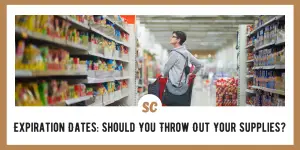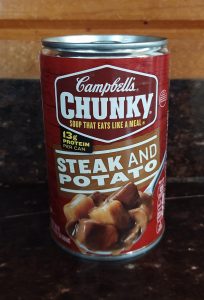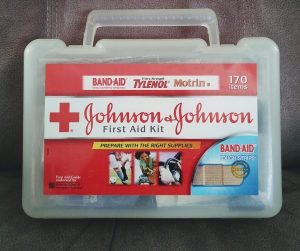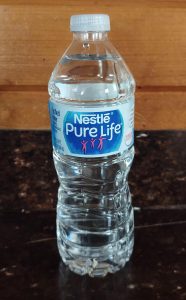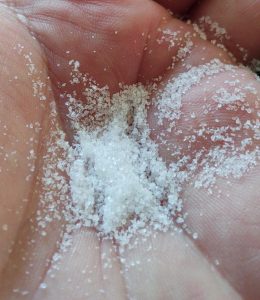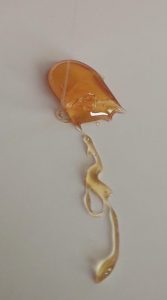On the surface, the idea of expiration dates seems straightforward. I accepted them for what they were when I was younger and viewed them as absolutes.
If I took a product out of the refrigerator and it was one day past the date, I thought it was no longer good and threw it away. That is what a person is supposed to do, right?
I believe we have been molded into a throw-away society that does not expect products to last and thus purchasing new things all the time is normal.
Looking back on how used to handle certain “expired” products, I now realize how ridiculous and wasteful some of my actions were.
Disclaimer: Make sure to do your own research here. This thoughts are just opinions. Your actions are done at your own risk.
SKIP AHEAD
The Deal with Expiration Dates
We generally think of these dates as being on food items, but they are obviously on all kinds of products. As it pertains to the prepper, they are on medicine, first aid supplies, bottled water, and many others.
Depending on the product and the company there are different ways in which a product’s lifespan is judged. Through this judgment, we are led to believe that the item is no longer any good past that date. The item should then be disposed of and replaced with a new one.
In my perspective, the purpose of an expiration date serves to protect two parties. The customer and the company selling the product.
Customers do need to know the approximate useful lifespan of an item, especially consumable products, to avoid any safety issues. Also, companies need to protect themselves from legal issues brought on by items that are no longer good.
The Change Over
At some point, I think people started to realize that in some cases expiration dates were somewhat bogus.
For example, I have a gallon of milk that expired one day ago. After removing it from my refrigerator I smell it and it smells okay. I taste it and it tastes fine.
According to the expiration date, the milk should be thrown away. However, in my opinion, the milk checks out and can continue to be used, just maybe at a faster rate before it spoils.
Many products that used to have expiration dates now have “best by” dates. To me, this just goes to show that hard expiration dates were a bit of a farse.
The same products that used to expire on a specific date are now okay to be used after the best by date, they just may not be at their best.
Expiration Dates, Best By Dates, and Your Supplies
At this point, you may be asking, “So what does all of this mean concerning my emergency preparations?”
My answer is that critical thinking and a little bit of research need to be done as it relates to every item in your preparations.
Let me make a quick comparison between a can of soup and a signal flare. A can of soup is dated as lasting one to two years although canned food can last much longer under ideal storage conditions. After two years, if the can looks okay then I am probably going to keep it.
Now, I do not have a lot of experience with signal flares but the ones I have seen generally have an expiration date lasting two to three years. I have heard that many of these flares do not go bad if they are stored properly and inspected regularly.
The problem is that proper storage conditions and inspections are easily overlooked and not kept up with. A signal flare is one of those tools that if I am using it, I need it to work and I need it to work right now. Due to that, I would swap out signal flares in my kit based on their expiration date to keep them in good working order.
Unfortunately, I am not going to go through every item that I can think of that would be in a person’s emergency supplies and speculate on that item’s expiration date.
However, I think it would be helpful to discuss a few more examples to illustrate the point of this article.
Canned Food
We did a detailed writeup on canned food shelf life that you should check out.
If you pick up a canned food item from the store, you will notice that many of them have an expiration date or best by date, which is roughly two years out.
As most food goes, that is a pretty long shelf life, and the average person is going to eat that food well within that time. However, people storing supplies for emergencies may have plans that exceed two years.
Luckily, it has been shown that when stored under ideal conditions canned food can last much longer than that. After all, the food has been cooked, preservatives added, and sealed within an aluminum container.
I have eaten canned food that was well past its expiration date, roughly three years. Of course, before eating it I did inspect the can to make sure it was not damaged, I made sure the contents did not “shoot” out upon opening, that there was no odd discoloration or growth, and that the food did not have a funky smell. The food did not make me ill, but the taste was not as fresh as it could be.
First Aid Supplies
To begin, I am not a medical doctor and the following is solely my opinion and experience.
As far as medicine, ointments, creams, and all that stuff goes, you will need to do your research on those specific items.
However, from what I have gathered from a few sources quite a few over-the-counter medications do not go “bad,’ but instead lose their potency over time. I would say that from my experience this has been true thus far, but caution should be exercised, and it is not my recommendation to consume expired medications.
In terms of other first aid supplies such as bandages and gauze, I have had items go bad to varying degrees. I believe this primarily has to do with packaging.
Older supplies were usually packaged in paper wrapping which was easily damaged through a puncture, moisture, or the adhesive seal failing. This caused items to be exposed to air and moisture which affected their longevity. I have found that those same items last much longer when they are vacuumed sealed or sealed in a more durable container.
Bottled Water
I still remember the first time I bought a bottle of water and it had an expiration date on it. After seeing that, I kind of scratched my head and wondered who thought that up.
Water does not spoil as we think of food spoiling. The problem with bottled water is the packaging. It is not designed to be stored long term, so the plastic bottle the water is in does not reflect that. Over time, the bottles can leach undesirable and harmful elements into the water.
There have only been a few times that I have consumed bottled water after its expiration date. While I did not become ill from it, I did think it tasted awful. This is also true of bottled water that is left in a vehicle or direct sunlight.
Honey and Salt
I love honey and salt is a dietary requirement of our bodies. Pure honey and salt do not go bad if they are stored properly. However, there are two problems with honey and salt that will shorten their life span.
The first is that like many products nowadays, some honey and salt brands inject certain additives into them that can affect the product’s longevity.
The second issue is the packaging. Companies do not design packaging to last forever because when most people buy a product, they usually do not set it on a shelf for ten or twenty years. They use it within a reasonable timeframe.
When packaging is not designed to hold up against the test of time, it will fail and the product will begin to deteriorate.
Final Thought
At the end of the day, my answer to the title of this article is, no I do not think emergency supplies should automatically be thrown out based on expiration dates.
Although on the flip side, if you want your supplies to be as fresh as possible and to perform at their best, I suggest rotating them out according to their expiration date.
It is my opinion that the longevity of supplies should be looked at with a critical eye based on their packaging, storage conditions, and how it is used.
Thanks for reading and stay prepared!
What are your thoughts on expiration dates and emergency supplies? Sound off in the comment section below and let us know!


